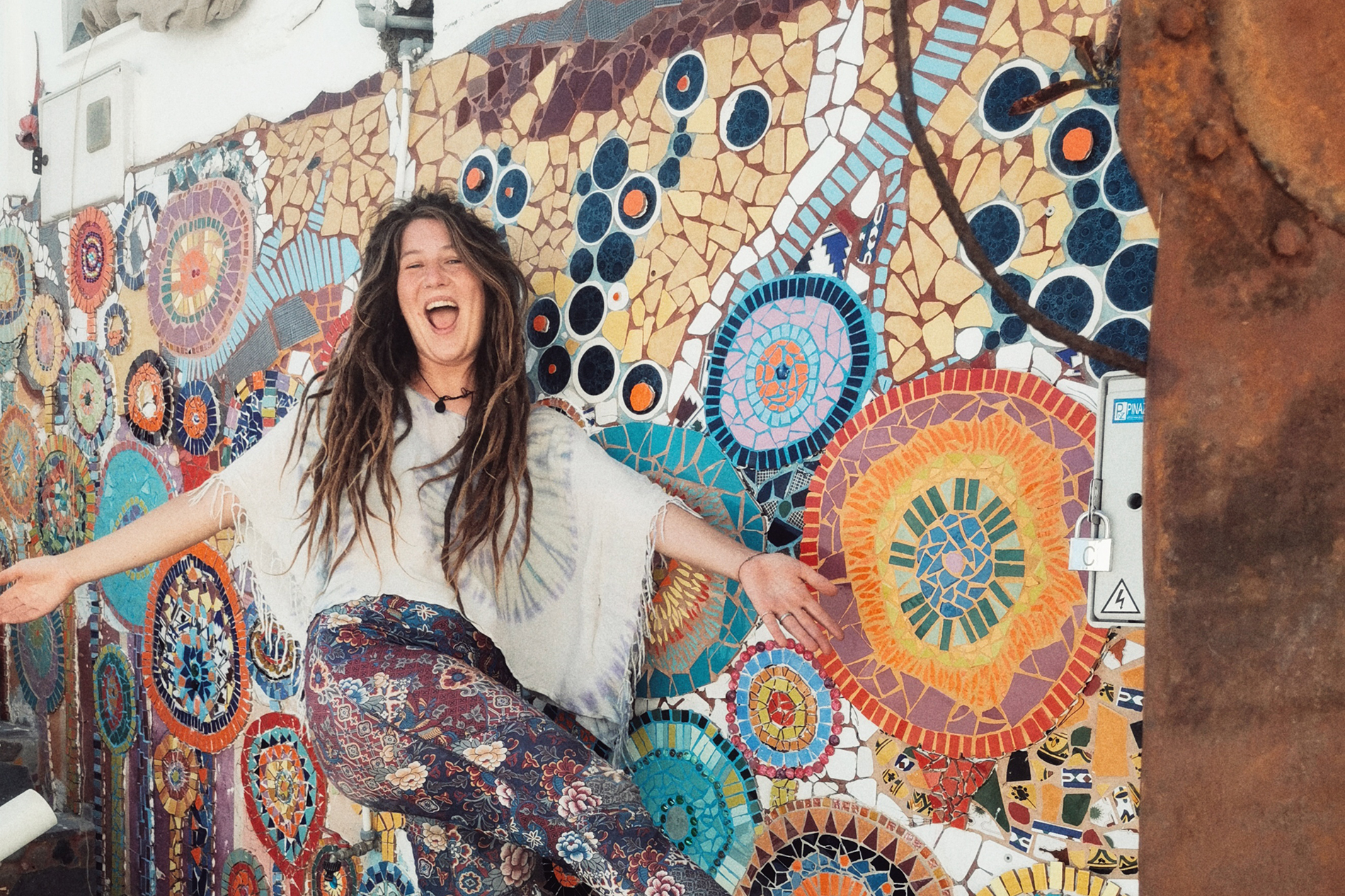
Lost Your Creativity? Let’s Get It Back
There’s probably nothing more frustrating than identifying as a creative person, maybe even working in the creative industry, and realizing all of a sudden: “Holy cow. I lost my creativity.”
What to do when the creative spark is gone? Creative ruts are normal but some can last for so long that it may feel like you entirely lost your creativity.
Before you despair, some words of consolation: Your creativity is never lost. It does not fall out of your pocket one day while taking a walk and it cannot be stolen by your evil-spirited neighbor (even if he tried!).
Your creativity is innately yours. This means that there are always ways to reconnect with your creativity, even when you feel like you cannot access it anymore.
Let me help you to find your way back.
Disclaimer: Some links on this page may be affiliate links. If you purchase something through these links, I may earn a commission (that helps me keep my small art business going) but you pay the same. Win-win! Thank you for your support.
Why do we lose our creativity?
If you talk to other creatives, you’ll quickly realize that “lost” creativity is a common problem.
Not feeling creative anymore comes with many symptoms, like
- lacking inspiration
- not being able to generate ideas
- losing passion for what you do
- feeling blocked
- feeling apathetic
However, underneath those symptoms often lies something deeper. And as many different people experience a loss of creativity, as many possible causes there are.
Often, however, our life circumstances give away important indicators.

If you’re struggling with depression or anxiety around making art, it can feel like you are simply not creative anymore.
Other times, our own expectations get in the way. Maybe you compare your creative output with others. Maybe social media weighs you down.
If you’re overworked and burnt out, how can you find time and joy for creating?
As many people, as many causes. But one thing remains true, your creativity is not lost.
It can help to understand the root causes of why your creativity is gone and start from there. But even if you have no clue where it went all of a sudden, you can still get your creative spark back.
Loss of creativity and mental health
Mental health and creativity are closely linked. Ironically, in two ways.
Some people feel like they need to be depressed to create good work – which definitely has been proven wrong.
It’s time to let go of the tortured artist stereotype. Creativity can transform pain and help to deal with emotions and trauma, but you do not need to stay in pain to create.
In fact, we are more creative when we are in a good mood!
And then there are a lot of people who feel like their mental health problems have destroyed their creativity for good– but do they?
How depression affects your creativity
In his fascinating book about mindwandering, neuroscientist Moshe Bar describes how depression and creativity are linked.
Depression often leads to an increase in narrow, ruminative thinking, while one of the main keys to creativity is our ability to associative thinking. The broader the associations we make, the better.
Bar writes:
“The good news for most of us about getting into an associative frame of mind is that it actually comes naturally, if we let it. We’ve all had some experience with this uplifting mindwandering – through daydreaming. […] So, here again, while we think of daydreaming as wasting time, there’s good reason our minds are given to it. It’s all the more reason that we should all allow ourselves to engage in it sometimes, maybe even make it part of our daily or weekly routine.”
From: Mindwandering: How it can improve your mood and boost your creativity
Even when depressed, we can train our minds to think more associatively. Fascinatingly, even simply reading chains of broad associations seems to lift our mood and boost our creativity.
For example: chair – house – cat – love – honeymoon – island – coconut – water – whale – singing – radio – engineer
Depression factually changes your brain and can reduce the volume of the hippocampus – but it seems that this is a reversible process. Even at older ages, we continue to grow new neurons and can tap into our innate ability to let our minds wander broadly.
We are all creative. You may struggle to access your creativity right now, but the door is not closed forever.
Lost creativity? How to get your creative spark back
Are you ready to get your creativity back? Here is some food for thought as well as some practical ideas that can help you to reconnect with your creativity.
#1 Accept your feelings about your lost creativity
If you’re rolling your eyes now and are about to leave this page – wait.
Often your anger, frustration, sadness, feeling like a failure, etc. can be a massive roadblock when it comes to creating.
To move forward, I think it’s best to first understand and accept your feelings.
And then transform them.
Only if you can say “ok I’m feeling like this now and that’s okay” you can find the courage to create again.
Accept your feelings, but take responsibility for your life by moving forward.
#2 Whatever you do, just keep going
I think this is my most important piece of advice. Creativity is a muscle and it needs to be exercised.
The more you create, the more creative ideas will come to your mind.
You just need to start somewhere. Just create something. Anything.
Try to make creativity a daily practice, but without any pressure. There are endless ways of using your creativity, and the more you do, the more you’ll feel you have it.
Everyone is creative. The only difference is that some people know they are and use it, others don’t.
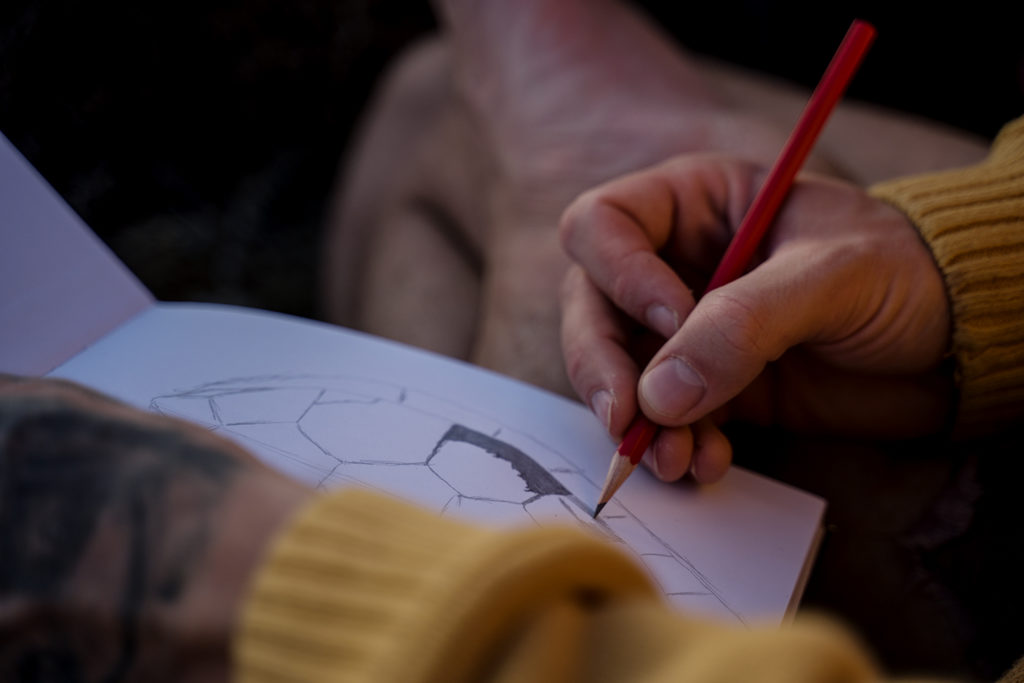
#3 Give yourself permission to create badly
Closely related to #2, but this is so important that I wanted to point it out separately.
When you make it your goal to create as often as you can, don’t load the weight of having to create good work on your shoulders.
Whatever good work means to you.
Instead, give yourself permission to create badly. Create badly without feeling bad about it.
As artists, we sometimes need to create a lot of shit until a little nugget of gold comes out.
Most great masters of art created a lot of mediocre stuff to get to the few immortal pieces that still move the world today.
So don’t fret if you feel like you’re not creative anymore – the good ideas will come naturally with time, as long as you keep creating.
Silence the inner critic. Oftentimes, just doing it is good enough.
#4 Reconnect with play to get back your creativity
What is creativity? Essentially, it is play.
Even as adults, play is essential to our well-being! And so is creativity.
So I urge you to not take creativity so seriously. Connect with your inner child and see creating as something fun.
See the world with curiosity. Creativity is an active exploration. What can I make of this? How can I combine these materials/words/images to make something new?
Your inner child longs to play. Let it.
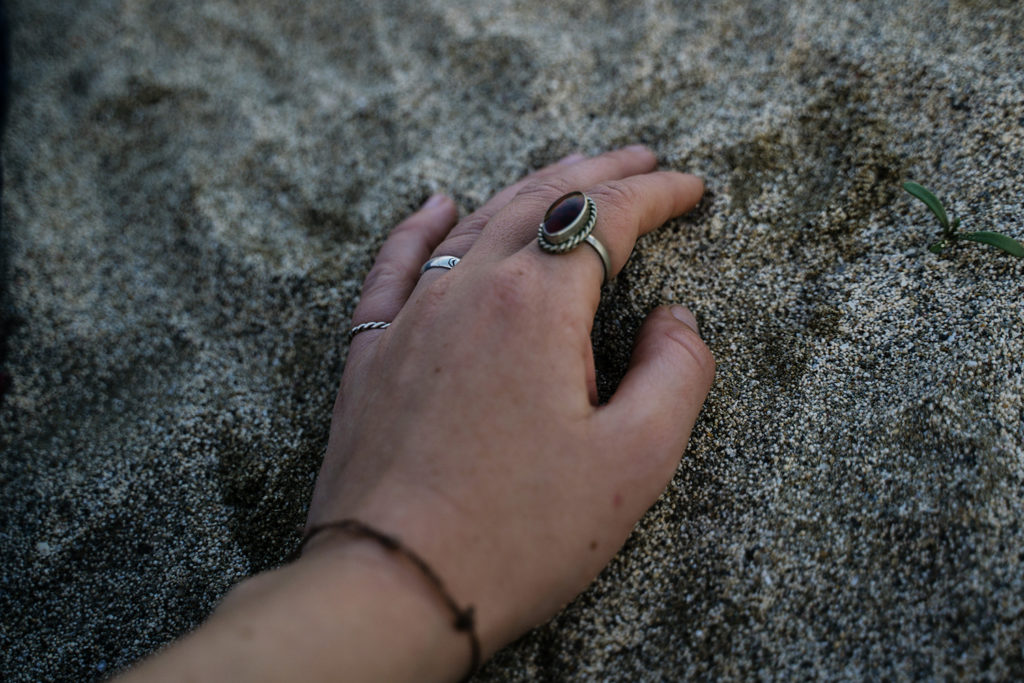
#5 Don’t monetize (all) your creativity
If you are working in a creative field, your problem might be that you’re experiencing a lot of pressure.
You need to be creative to make money.
Sometimes, the thought of having to have good ideas just to make a living can paralyze you and block your creativity entirely.
If you’re overwhelmed by this, try to either find an additional income source that supports you or make time to create outside of your profession.
Often, engaging in a different creative activity can bring the spark back for the main thing you do.
#6 Start a project that keeps you accountable
If you need some extra motivation to keep yourself going, start a project!
For example, after I almost gave up photography, I started yet another 52-week project.
It was a great way of keeping myself accountable and creating regularly. Since I shared the photos online, people were watching – and I simply owed it to myself to follow through.
In projects like this, again, don’t expect every part of it to be genius. Focus more on the finish line than perfecting every detail.
Read also: Why Artists Struggle With Perfectionism (And What to Do About It)
For some words of love and inspiration in your mailbox, sign up for my newsletter here. ❤️
#7 Prioritize your (mental) health
Creating can help you to feel better, but not being well mentally and physically can make it harder to express creativity.
So if you can only promise me one thing, please make your (mental) health an absolute priority in your life.
Engage in activities that contribute to your health.
Make sure you get enough sleep. Nourish yourself. Move your body. Journal. Meditate. Hug a loved one.
You know what to do.

#8 Make creativity a priority
After you made your overall health a priority, next is creativity.
You can’t be creative if you don’t make room for creativity in your life.
Make it a habit, create a routine – reserve a special time slot for creating in your calendar.
And honor those appointments with yourself.
If creativity is something you want to grow, you need to give it your time and energy to blossom. Take care of your creativity just like you would of your favorite plant.
(If you’re the kind of person who regularly kills their house plants, this metaphor might not work for you, but you know what I mean.)
#9 Reduce the input, increase the output
More than ever, we are bombarded with input in our lives. Media is everywhere, and with our phones being so readily available, we may even take it into bed with us.
If you’re in a creativity crisis, you have to be careful with what you consume. And how much.
Does it inspire you or drain you?
Don’t fill your head with other people’s ideas all day long. Put yourself into an environment where you can create your own.
Observe yourself – when do you reach for social media? When you feel a certain inner void, some kind of boredom? In my opinion, those moments have to biggest potential to bring out ideas in you.
So next time you reach for your phone, pause for a moment and question if it truly serves you.
Read also: All the Reasons Why Social Media Is Bad for Artists
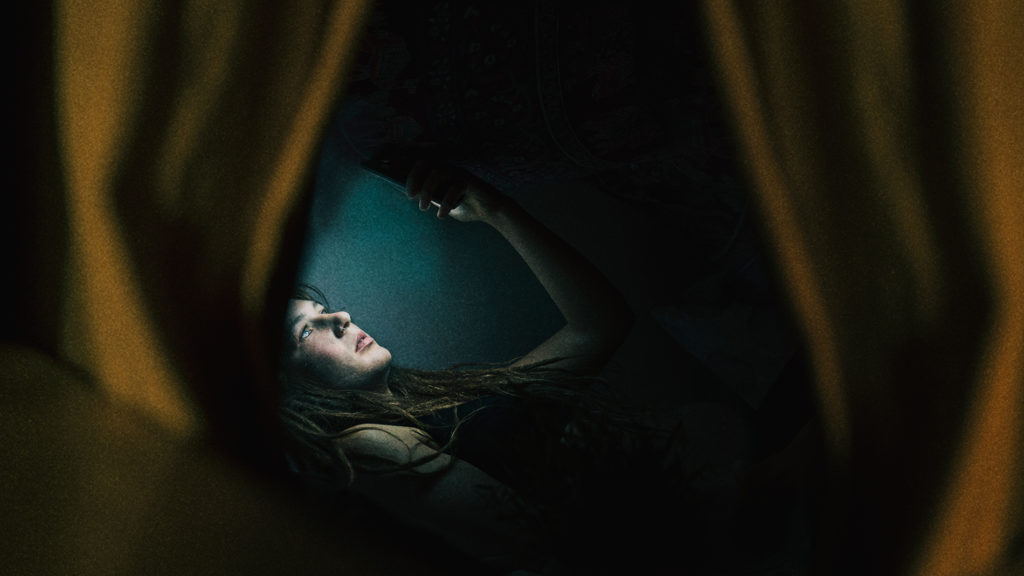
#10 Try getting bored when you feel like you lost your creativity
Yes, you read that right. Let yourself be terribly bored once in a while.
We often ignore our inner need to rest, relax and daydream.
This is the breathing room where ideas have space to develop.
If you’re like me and ideas keep you awake at night, maybe this is a signal that you need to take more breaks during the day (I certainly should).
Take a moment to just be and see what comes up. Maybe that’s where you will find the creativity you thought you lost.
#11 Try something new
Personally, I’m someone who gets really inspired by new experiences and new environments.
Maybe that could work for you, too?
Take a day trip somewhere. Get into nature. Try a new painting technique. Take a class.
A big part of creativity is simply combining different input sources all around us.
So be like a sponge and soak up all the good stuff around you. Get out there and experience new things.
It may spark your creativity in the most unexpected ways.
How I lost my creativity – and got it back
At one point in my photographic journey, just when my work started getting recognized on some big online platforms, I almost quit photography.
Well, in fact, I did stop creating for a couple of years even.
What happened? My own expectations to create ‘good’ work (and get better with every photo) had robbed me of all creativity. Or at least my willingness to create.
I had forgotten about the one key principle: Allow yourself to fail, but just keep going.
Only years later I realized how vital creative expression is to me. And slowly, I started picking up my camera again.
I started falling in love with self portraiture again.
And I realized that to be creative, you just need to create. No matter what.
So even if you feel stuck in your creativity right now, I can 100% guarantee you that you did not lose your creativity.
Just be brave enough to start creating again. I can’t wait to see what you will birth into this world.

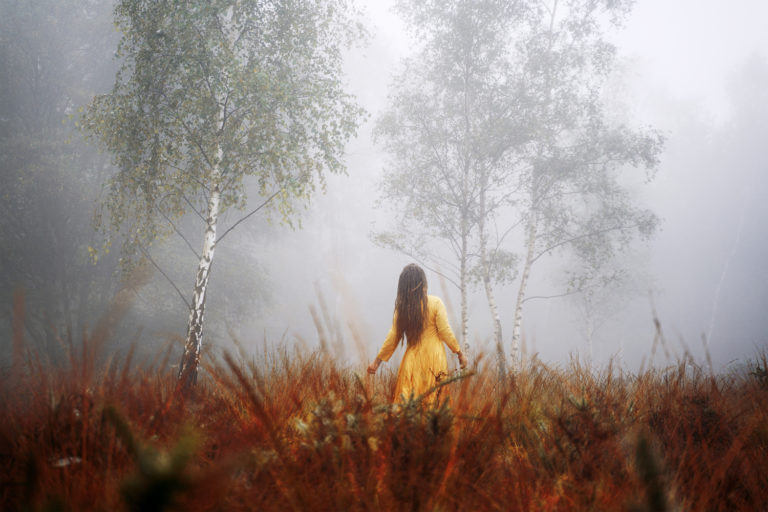
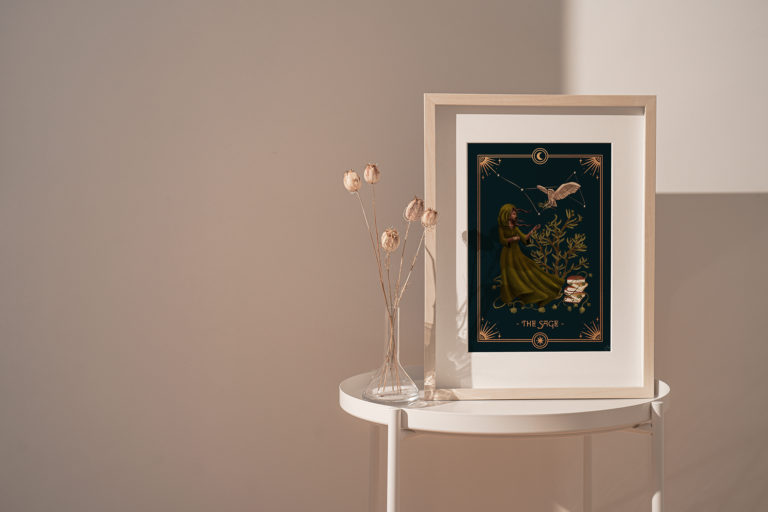

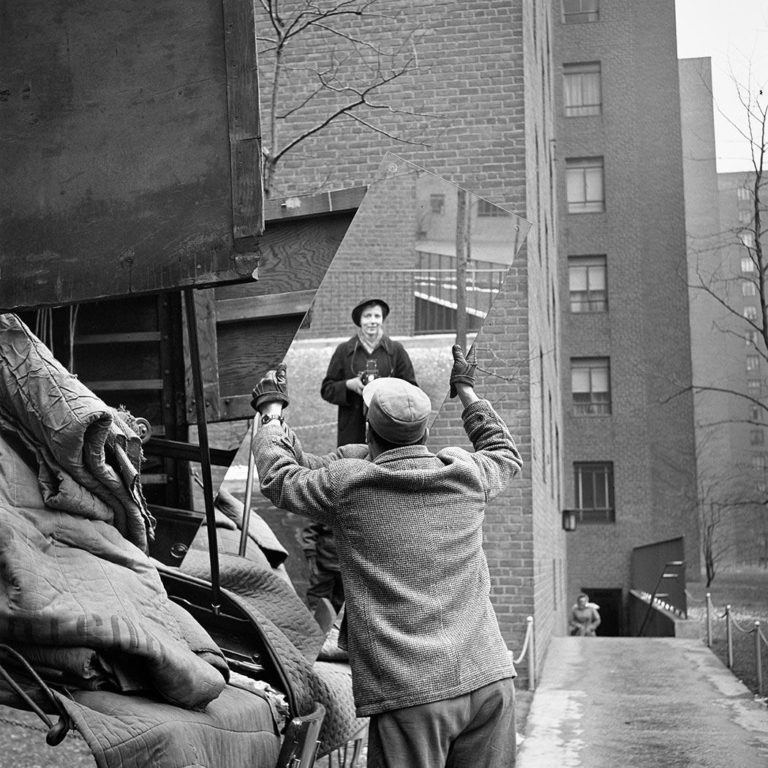
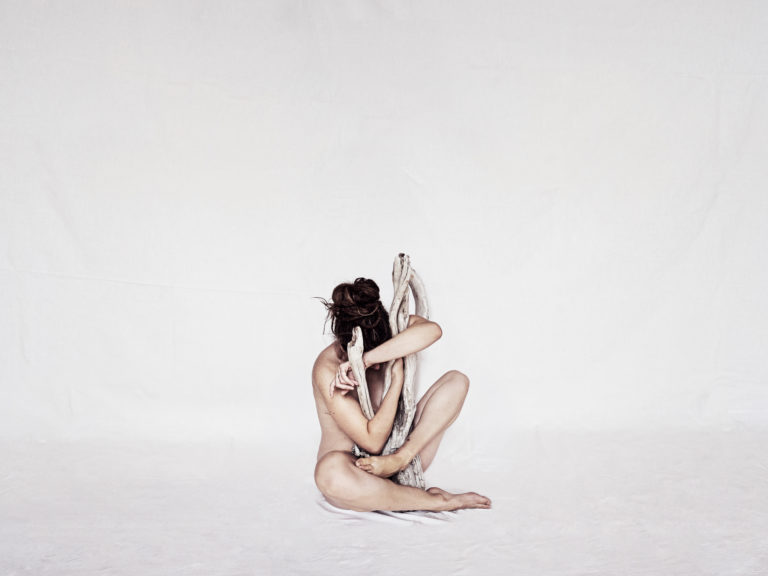
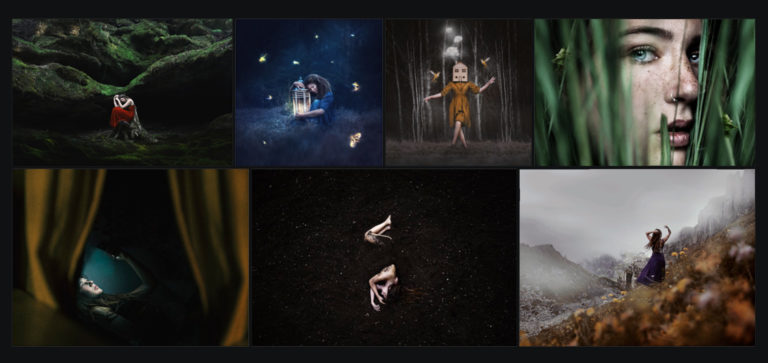
It can be a scary feeling to think the ability to create has dissolved. This is a very thoughtful and practical article, thank you for taking the time to write it! It has been helpful to me, my summer is approaching, I’m going to try and put some of these into practice! Thank you!
I’m really glad it helped, Lauren! Enjoy easing back into your creative side 🙂
Hi Anna!
Really great article- thank you for this thoughtful and kind approach to navigating a hard issue.
Your creative journey traveler,
Jill
I love the compassionate tone in this article. Thank you!
(As side note, what helped me with ideas that come to me especially when I drift off to sleep is to keep a notebook on my nightstand. Ideas written down are contained and I feel like they’re ‘safe’ from being forgotten.)
Thank you, Nina! Yes, I truly believe it’s important to be compassionate with ourselves, especially when we are struggling 🙂
And I love your notebook idea! Maybe this will be useful for others, too.
All the best, Anna
I lost my creativity when I lost my son. My projects were never for money. They were for me and he was always my biggest supporter. Now I feel like I go to work come home and sit until it’s time to go to bed and do it all again. It’s been 3 years and I miss all of it . I have no motivation and no creativity. I don’t know how to get past this rut. Maybe I can’t I don’t know
Aw, Rebecca, I’m so sorry for your loss. It must be incredibly hard to experience this. What comes to my mind regarding your lack of motivation and creativity… Maybe you can channel your feelings into creating? All your memories together and your love for him are still there. Have you tried using those as a source to draw from? I can only imagine how powerful it would be if all those feelings went into a creative project – and maybe it could even help you process your grief. If your son was the biggest supporter of your creative outlets, I’m sure he would love for you to keep creating and find joy in it again. I hope you will 🙂 Sending you much love! Anna
Is there a correlation between societal pressure and the decline of creativity in individuals, or is it more related to personal struggles and mental health issues?
I would say it can be any of those! If your way of expressing yourself creatively doesn’t conform to societal norms, it can be judged very harshly – it takes a lot to keep creating what you truly desire to create despite the opinions of others. We are social beings, so of course we all want to belong in some way. Putting your art out there is an act of courage. 🙂